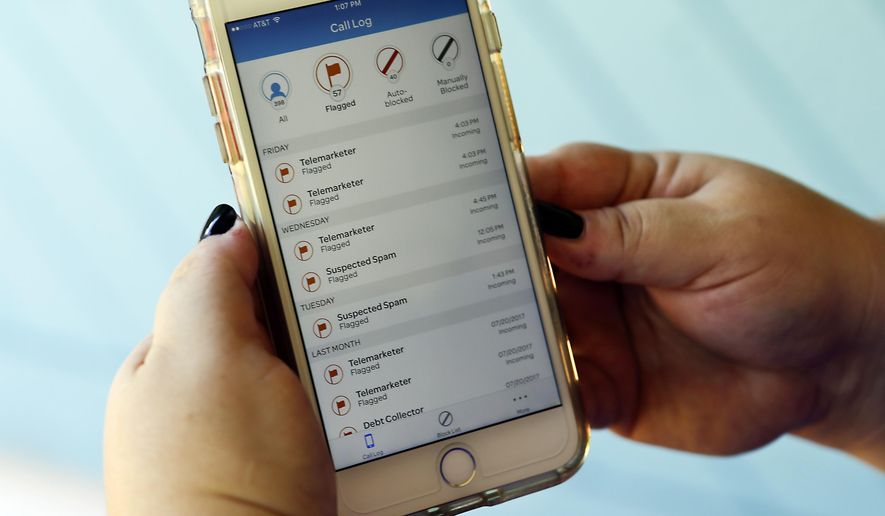The phone rings, and on the other end of the line is a recorded message threatening IRS action against you, or offering a free stay at a luxury hotel, or asking you to participate in a survey.
Such blood-boiling robocalls could be coming to end soon.
The Federal Communications Commission voted Thursday to expand the powers of mobile phone companies to automatically identify and block robocalls with newly devised filters. What’s more, the blocks on unwanted callers can be made without getting customers’ permission first.
“There is one thing in our country that unites Republicans and Democrats, they are sick and tired of being bothered by unwanted robocalls,” FCC Chairman Ajit Pai said. “This FCC will stand with American consumers, not with those who are badgering them with these unwanted robocalls.”
The Trump administration’s move is considered the most aggressive yet by the federal government to address an explosion of robocalls that officials and consumer rights advocates have warned has threatened to undermine public confidence in the nation’s communication network.
“We hear complaints from consumers absolutely all of the time,” Consumer Reports Policy Analyst Maureen Mahoney told The Washington Times. “This is a welcome move from the FCC.”
Scammers, telemarketers and polling firms have benefited from cheap software that has simplified automated mass calling.
Last year, an estimated 47.8 billion robocalls were made in the U.S. — a 56.8% increase over the 30.5 billion robocalls made in 2017, according to call-blocking service YouMail. That averages about 12 robocalls per month for each of the country’s 325 million residents.
FCC officials, who recorded more than 232,000 robocall complaints last year, say those unwanted calls cost American consumers at least $3 billion a year.
Scammers do not care if callers have added their phone numbers to the government’s Do Not Call list, analysts say. YouMail estimates about a third of robocalls come from debt collectors and companies pitching cruises or insurance.
Thursday’s 5-0 vote to adopt the new rules, which Mr. Pai proposed last month, cleared the committee with bipartisan support and allows wireless carriers to use new technology that relies on analytics to track sources that emit large bursts of calls or that place calls of brief duration.
Consumers can still block calls from unknown numbers themselves or opt into or out of any blocking services.
The move has been applauded by the leading wireless carriers, which have said they needed new technologies to stop the robot technology.
But concerns have emerged over whether the policy is too broad and could block legitimate automated calls, including reminders of doctor’s appointments or legitimate credit card collection bill calls.
Before the vote, several representatives from the health care and credit card industries met with FCC officials, including the American Association of Healthcare Administrative Management and ACA International, which represents credit and collection companies.
In a filing with the FCC, ACA International called the changes “well-intentioned” but “overbroad” adding that its members worried lawful calls could be “mislabel as scam or fraud.”
Another concern is whether costs from new blocking technologies will be tacked onto subscribers’ monthly wireless bills without much clarity.
On Thursday, FCC Commissioner Jessica Rosenworcel, a Democrat, raised the issue, saying that the agency did not require that AT&T, Verizon, Sprint and T-Mobile to offer the new call-blocking services for free.
Ms. Mahoney, who tracks privacy issues, said that is the next major hurdle for consumers.
“People already have so many extra charges, this could be one more,” she said.
• Dan Boylan can be reached at dboylan@washingtontimes.com.




Please read our comment policy before commenting.